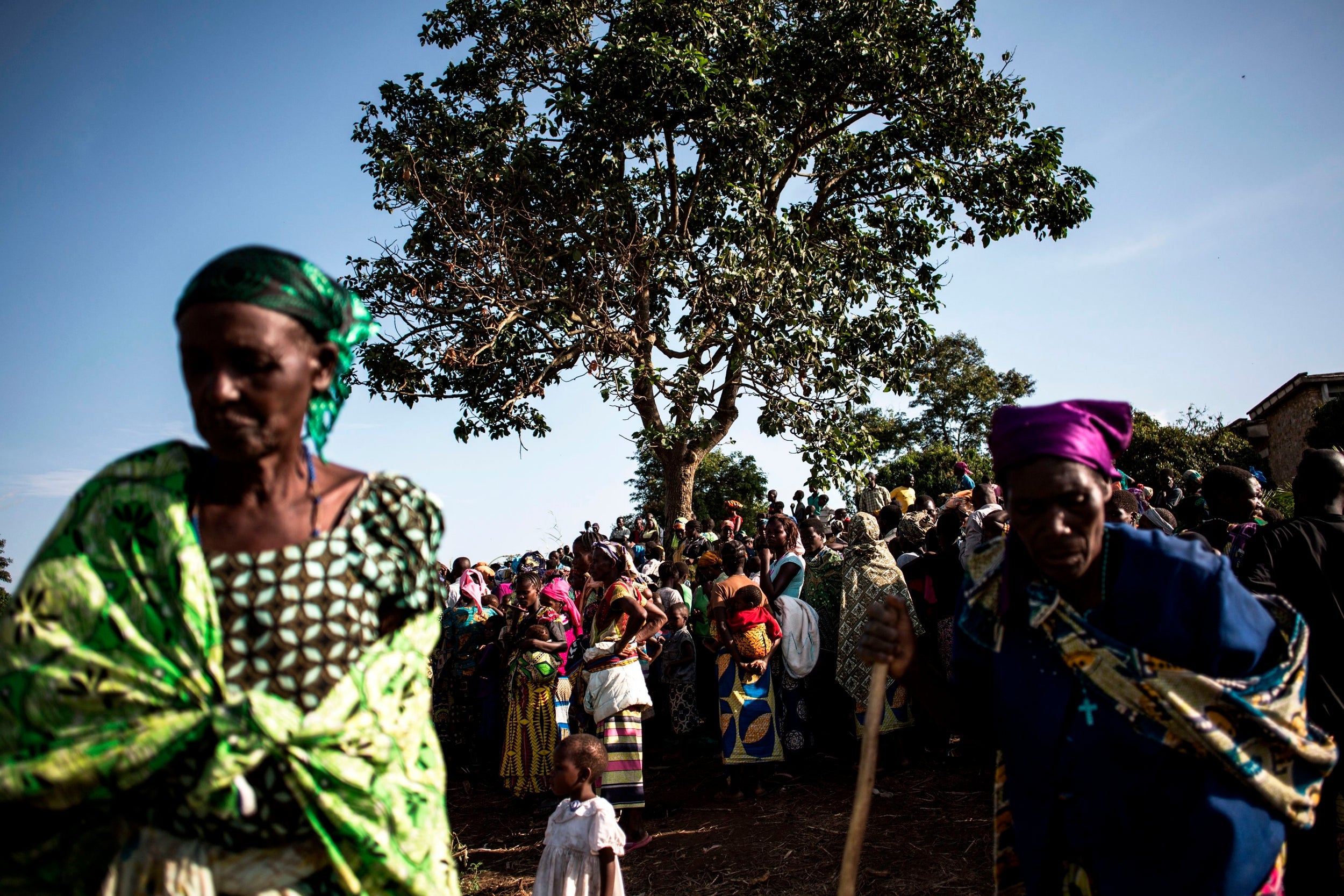More than 300,000 flee DRC violence in two weeks, UN agencies say
Exodus is complicating treatment of Ebola patients as epidemic spreads to Uganda

Your support helps us to tell the story
From reproductive rights to climate change to Big Tech, The Independent is on the ground when the story is developing. Whether it's investigating the financials of Elon Musk's pro-Trump PAC or producing our latest documentary, 'The A Word', which shines a light on the American women fighting for reproductive rights, we know how important it is to parse out the facts from the messaging.
At such a critical moment in US history, we need reporters on the ground. Your donation allows us to keep sending journalists to speak to both sides of the story.
The Independent is trusted by Americans across the entire political spectrum. And unlike many other quality news outlets, we choose not to lock Americans out of our reporting and analysis with paywalls. We believe quality journalism should be available to everyone, paid for by those who can afford it.
Your support makes all the difference.More than 300,000 people have fled inter-ethnic violence in the Democratic Republic of Congo (DRC) in the past two weeks, UN aid agencies have said.
The exodus has complicated the tracing and treatment of patients at risk of Ebola in an epidemic which spread to Uganda last week.
At least 161 people have been killed in a northeastern province of DRC in the past week in an apparent resurgence of ethnic clashes between farming and herding communities, according to local officials.
Babar Baloch, a spokesperson for the UN refugee agency, said: “Violence in northeastern parts of the Democratic Republic of Congo is reported to have displaced more than 300,000 since early June.
"The situation in Ituri province has deteriorated since the middle of last week, with multiple attacks involving the Hema and Lendu groups.”
The United Nations High Commissioner for Refugees fears that the escalation could engulf large parts of the province, amid reports of killings, kidnappings and sexual violence unleashed against civilians, he said. The government is trying to bring the clashes under control, he added.
As Congolese flee violence at “this massive scale”, it is feared that more people will try to seek safety in Uganda and cross Lake Albert, Mr Baloch said.
The Ebola epidemic in Congo has caused 2,168 infections since August, including 1,449 deaths,World Health Organisation (WHO) spokesman Tarik Jasarevic said. Ituri accounts for about 10 per cent of cases and deaths.
“We are always saying the mobility of the population in North Kivu and Ituri is a risk factor,” Mr Jasarevic told the briefing.
“So every time you have people moving in high numbers, it is more complicated to do the work of follow-up, contact tracing, follow up on the people who are supposed basically to be observed on a daily basis for 21 days,” he said, referring to the disease's incubation period.
Reuters
Join our commenting forum
Join thought-provoking conversations, follow other Independent readers and see their replies
Comments